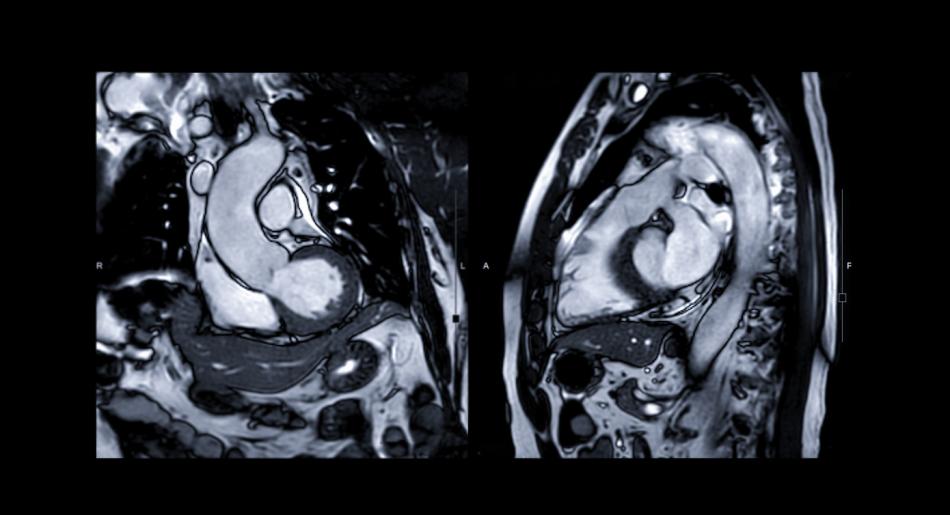Common reasons for cardiac MRI:
To assess heart chamber size and function
To evaluate heart muscle tissue characteristics in various conditions
To gain further anatomical information about other cardiac structures
How do I prepare and how is it done?
If you are having a stress perfusion cardiac MRI, in order to improve the chance of detecting ischaemia, you should avoid caffeine (coffee, tea, caffeinated soft drink) for 12 hours before the perfusion MRI scan. You will be asked to attend the Radiology Department in one of our partner private hospitals.
You must inform the MRI department prior to the scan if you have:
- pacemaker / ICD
- previous metal injury to the eye or shrapnel injury to the body
- metallic implant (joint replacement, metal rod, neurostimulator devices, etc.)
A small plastic tube (cannula) will be pre-inserted into a vein for later administration of medication or MRI contrast agent during the scan for various purposes.
You will first complete a short safety questionnaire, and then you will be taken into the MRI scanning room. It is important you do not carry any metallic object into the MRI room including jewellery . You will be asked to place your arms above your head and the table will move towards the scanner.
MRI scan is painless and non-invasive - the Radiologist will communicate with you via the intercom advising you the need to hold your breath (freezing motion) during the scan. MRI machine can be a little noisy, and you will be given a headphone to wear, and to listen to some music.
An MRI scan usually takes about 45 minutes to perform but the exact duration depends on the MRI sequences needed to answer the clinical question.
What will happen after the scan?
After the scan, you will be guided into a recovery area and be asked to remain for about 30 minutes. This is to ensure there is no adverse reaction to the MRI contrast agent if administered. You can then leave the hospital and wait for our team to contact you with results.
Your scan will be reported by expert radiologists and the findings will be discussed with you within 24-48 hours after the scan.
